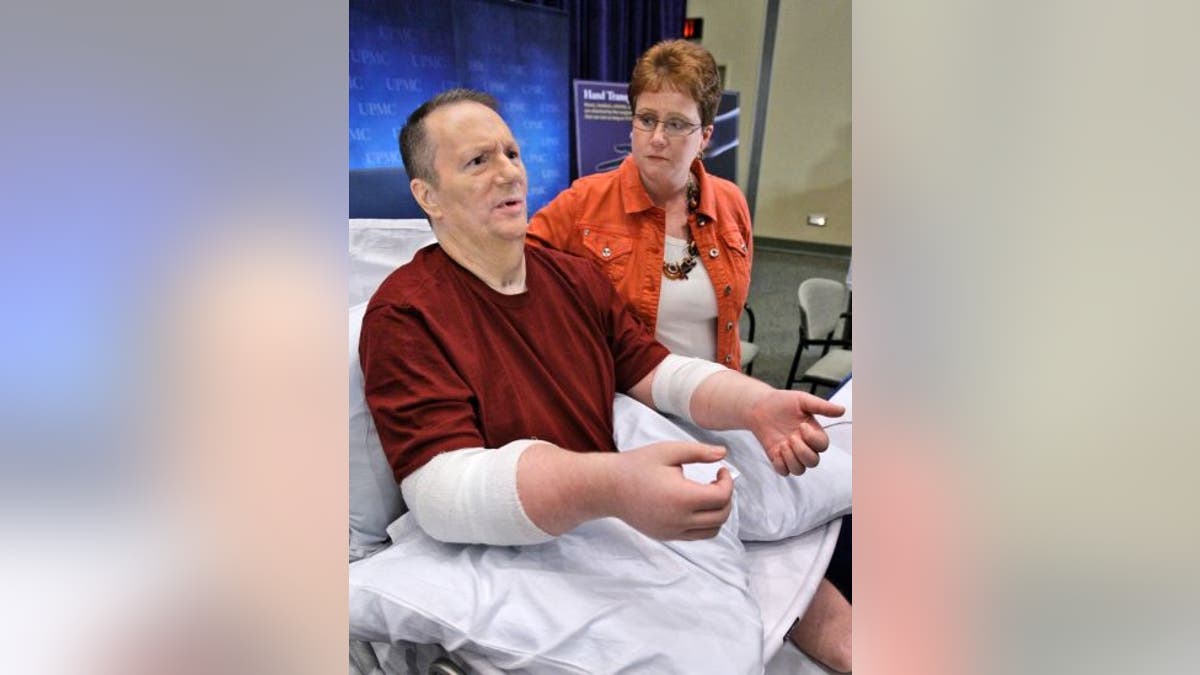
Jeff Kepner is pictured after his 2009 double hand transplant. (AP)
Jeff Kepner made headlines in 2009 as the first person to receive a double hand transplant in the United States. Seven years later, 64-year-old Kepner is in the news again as he reveals the hands are completely non-functioning.
“From day one I have never been able to use my hands,” Kepner told TIME in an exclusive interview. “I can do absolutely nothing. I sit in my chair all day and wear my TV out.”
Kepner lost his hands to sepsis that started from a strep throat infection in 1999. He used prosthetics to help him drive and keep his job, TIME reported, neither of which he can do now. Ten years after the infection he underwent surgery at the University of Pittsburgh Medical Center (UPMC) to attach the donor hands. Doctors warned that the surgery may not be successful, and that his body could possibly reject the hands, but he claims he was told he could go back to using prosthetics in a worst-case scenario, according to the report.
Dr. Vijay Gorantla, administrative medical director of the Pittsburgh Reconstructive Transplant Program at UPMC, told TIME that a removal procedure has been discussed for Kepner, but it’s uncertain if he could go back to using prosthetics. He would also require rigorous physical therapy.
“We believe that additional, minor surgical procedures – and commitment to more physical therapy – could improve the function of his hands to help him with activities of daily living,” Gorantla told TIME.
Kepner told the news outlet he’ll likely keep the non-functioning hands attached to his body because he’s not interested in going through further operations. Out of the four patients, including Kepner, who received bilateral hand/arm transplants under the care of the same surgical team, three have had significant functional return in their hands.
“Complex surgery such as hand transplant do not produce uniform results in everyone,” Dr. W.P. Andrew Lee, the surgeon who led Kepner’s transplant, told TIME. “But we have been encouraged by the functional return in the great majority of our recipients whose lives have been transformed by the procedure.”
While Kepner said he does not blame the doctors who performed the transplant, if he was given the choice today between keeping his prosthetics or undergoing a transplant he would choose the former.
“That’s the chance you take,” he told TIME. “And that’s the chance I took.”
